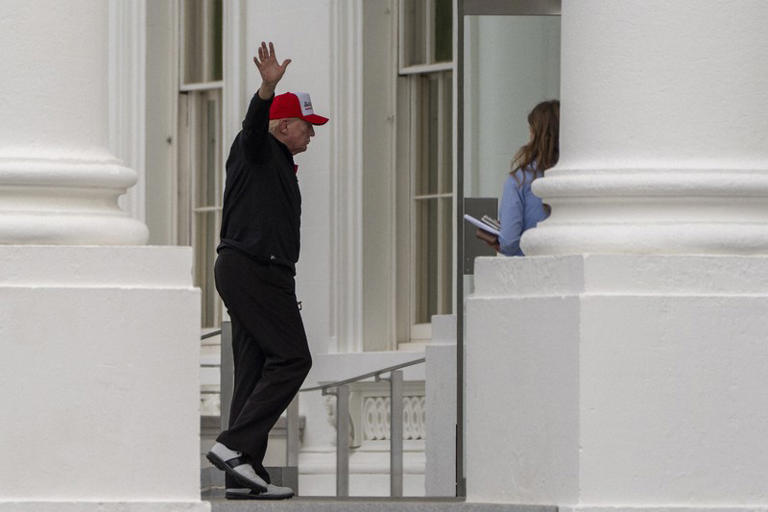(MSN) The repercussions of U.S. actions that have disrupted the world will eventually fall on the country’s own shoulders, and early signs of this are already apparent.
It has been three months since U.S. President Donald Trump took office. He has swiftly implemented executive orders to deport immigrants without legal permission, freeze foreign aid and reduce government staff, among other measures. However, lawsuits seeking to halt these orders have been filed one after another, leading to ongoing confusion.Among the most perplexing issues for the world are Trump’s high tariff policy and the Ukraine ceasefire negotiations. Both are characterized by ad-hoc responses, with frequent policy adjustments whenever challenges arise.
The United States’ “reciprocal tariffs,” which impose a flat 10% rate on imports and add exorbitant duties on countries and regions with large trade deficits, have antagonized the entire world.
Seeing the significant impact on American lives, the administration abruptly announced a temporary suspension of the additional tariffs. Following this, exemptions have been expanded in numerous cases.
China, which the U.S. considers its primary target, was excluded from the suspension, leading to a trade war. However, the U.S. imports irreplaceable items from China, such as raw materials for pharmaceuticals and minerals necessary for manufacturing weapons. Any retaliatory measures like embargoes would harm the U.S.
In the war in Ukraine, Washington secured partial ceasefire agreements from both Russia and Ukraine, including halting missile attacks on energy facilities and ensuring the safety of ships in the Black Sea. However, Moscow refuses to agree to a full ceasefire, and the U.S. has found itself caught between Russia and an increasingly resistant Ukraine, causing negotiations to stall.
In the Middle East, despite the collapse of a ceasefire agreement between Israel and the Islamic group Hamas, the U.S. has left the situation unresolved and embarked on nuclear negotiations with Iran. If Washington plays its hand in various international affairs and abandons negotiations when it runs into difficulties, the chaos will only deepen, and criticism will likely be directed at the U.S.
What does the U.S. aim to achieve by taking such risks? The international community, unable to discern Trump’s true intentions, is preparing for a prolonged struggle, while Trump himself appears increasingly anxious
Despite this, Trump’s domestic approval rating remains around 50%, showing no signs of decline. However, without a grand strategy, riding a wave of public opinion alone will inevitably lead to collapse.
The path forward should be trade negotiations aimed at mutual prosperity and ceasefires based on law and justice. If the pursuit is truly for prosperity and peace, Trump must first change his self-righteous attitude.










